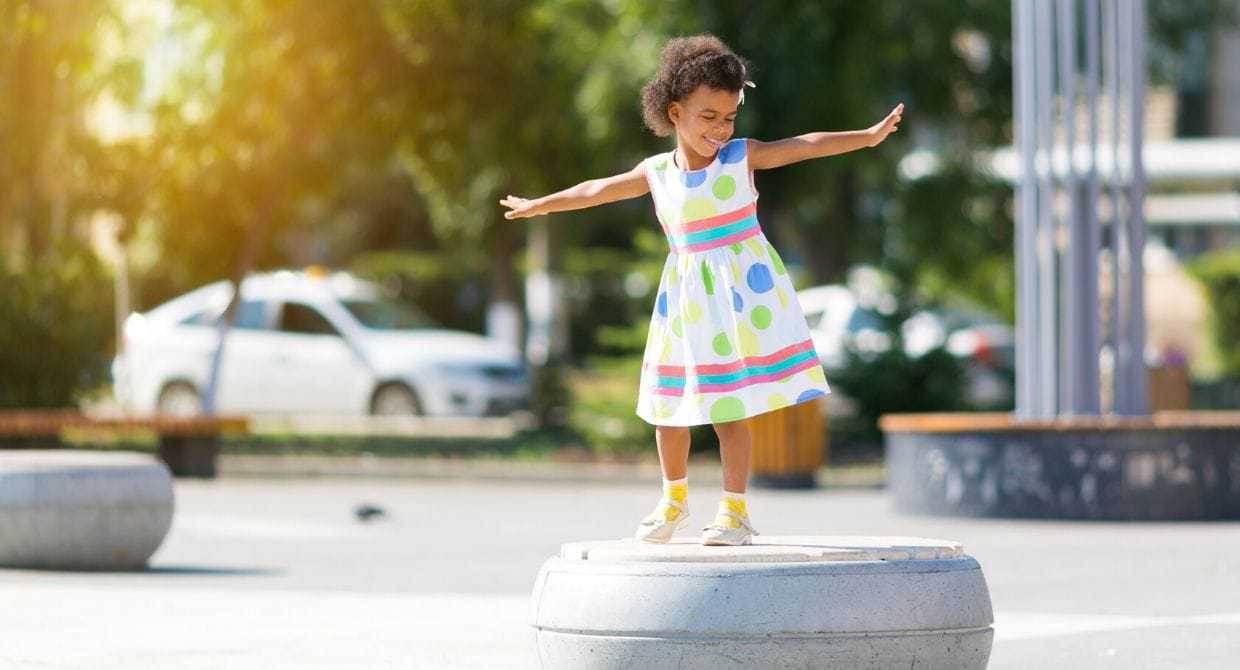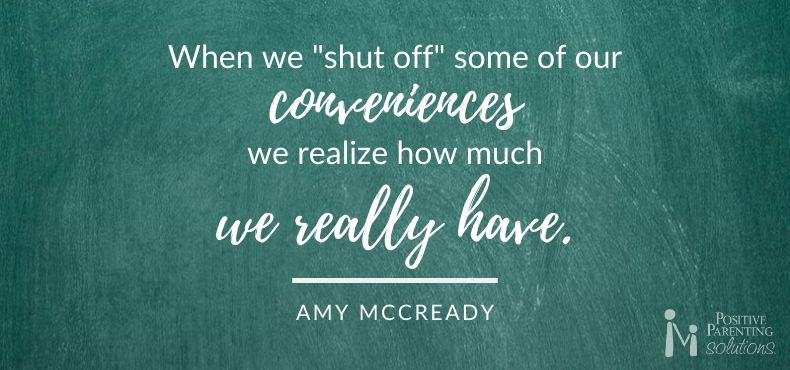Eight Tips to More Grateful Kids
Ah, those pesky first-world problems–like when your distraught teenager can’t get cell service on your Thanksgiving road trip or when your toddler has a tantrum because you won’t buy him yet another toy at the store.
Most of us are raising our kids with more luxuries than we had growing up. Life is certainly hard, and growing up will always have its aches and pains, but in a generation full of materialism and entitlement, how do we tactfully–and effectively– teach our kids an appreciation for what they have?
If we constantly insist, “You don’t know how lucky you are,” or “In my day, I didn’t have the things you do,” it will just sound like pestering and make our kids feel like we don’t understand their problems.
So, how can we help our kids be thankful in a way that really resonates with them?
As the holidays approach, there’s no better time to shift our children’s focus toward an attitude of gratitude. Here are 8 ways to encourage more thankful kids.
1. Implement Family Contributions
Maybe you’re in the habit of doing most household chores yourself. Sometimes, frankly, it’s just easier because it’s your way and doesn’t involve nagging your kids to do it.
If we sense our kids aren’t grateful enough-either about the work it takes to run a household, the job we have that buys them clothes, or the car maintenance it requires to drive them all around town-then we need to increase their family contributions.
The first step to family contributions is to label them as such. The word chores sounds like a real drag, doesn’t it? Instead, when we label tasks as family contributions, it reminds our kids that these tasks actually help everyone out. They contribute to the family.
This doesn’t mean our kids will suddenly like the tasks at hand or stop whining about them just because we shifted our language. But if family contributions become routine, kids are more likely to stop complaining. They’ll also grasp how frequently these tasks need to be accomplished–like unloading the dishwasher and folding the laundry–and chances are they’ll earn a whole new respect for what their parents and caregivers do on a daily basis.
Please Note: For Positive Parenting Solutions members, please review Sessions 3 and 4 in the online course for loads of strategies to get kids to do their Family Contributions without you having to nag or remind. Also, don’t forget about the advanced module on Chore Wars, where you’ll discover a simple contract to turn complaining into cooperating.
2. Schedule Acts of Service
We all have good intentions to bake cookies for the neighbors, stock the local food pantry, or collect donations for the underprivileged–especially around the holidays. Unfortunately, our crazy daily routines tend to edge out these activities.
Consider making acts of service a priority in your family. Have a family meeting and let everyone brainstorm ideas for service activities that are near and dear to them. Then, schedule one or two per month–all year long.
Maybe your 4-year-old cat lover would like the family to volunteer at the local animal shelter. For Thanksgiving, your teen may suggest visiting and entertaining the elderly at your local senior center. You could even go to the park and collect trash together.
When we make time for these simple–yet profound–contributions, the benefits abound. Our kids develop a stronger sense of community and connection to service work. They’ll experience the joy that comes from making a difference in someone else’s life. They’ll feel more connected to their families. And they’ll feel more grateful for the things they have.
3. Make Do With Less
It’s easy for kids and adults to get accustomed to the good life. The ease of things. The expectation that all our favorites will be in the lunchbox or that the newest gadget or gizmo will DEFINITELY be under the Christmas tree.
Unfortunately, this can lead to a life of entitlement and taking things for granted.
Once a month, choose something your family can live without. Maybe you can skip pizza delivery for a few weeks, go without television for a while, or go without air conditioning for a week in July. When we “shut off” some of our conveniences, even for a short time, we realize how much we really have.
4. Look for Silver Linings
The next time an unfortunate situation comes up, focus on the silver lining.
The movie you wanted to see is sold out? No problem. Point out that you now have time to go sledding together instead.
Kids missed the bus? Now you can have a sing-off in the car on the way to school.
Focusing on silver linings is about having a posture of gratitude even when–especially when–things aren’t going well.
Our kids are going to have endless ups and downs along their life journey, and if they don’t learn to weather the downs with some optimism, they’re going to struggle much more than necessary.
(Even though we want to mention the bright side of things, be careful not to turn lessons into sermons. Otherwise, our kids will stop listening.)
5. Making Gratitude a Ritual
We can also focus on silver linings through daily rituals. At dinner, everyone in the family can share three things they’re grateful for that day. Our toddler might mention the yummy cookie he ate, or our tween could recall the new friend she met. Any positive is positive.
When kids are older, they might prefer keeping a gratitude journal for daily reflection. Writing about things they’re happy about–especially before bed–can be therapeutic and help them get a more restful night’s sleep.
We can also get a big jar for the family and encourage everyone to jot their “gratitudes” on slips of paper throughout the week. When the weekend rolls around, we can read them out loud to each other and even make it fun by guessing who wrote what.
We don’t have to wait for Thanksgiving for gratitude rituals. If we habitually focus on what we have and not what we’re lacking, we’ll teach our kids to foster year-round, life-long gratitude.
6. Give Encouragement for Effort Instead of Superficial/Flowery Praise
It seems like a good thing to praise our kids, right? To tell them how smart they are, how funny they are–all in an effort to relay our love and support?
The interesting thing is, excessive praise doesn’t make kids grateful. It makes them less motivated, more self-centered, and entitled.
Praise makes our kids feel awesome for a short period of time–like that Instagram post that got 200 likes–but it doesn’t last long. This is mainly because praise doesn’t encourage more important abilities, like hard work, perseverance, or appreciation for what it really takes to do well in school or in sports.
If we encourage our 10-year-old musical prodigy by saying, “I’m so pleased you practiced your violin so much this fall–that’s why your recital was such a success,” instead of saying “You’re just so amazing, I’m so proud of you,” she will appreciate that it was her effort that really paid off, not her natural skills. She’ll be less likely to take her hard work for granted and be all the more grateful for what she achieved.
7. Remove Rewards
In the same way, we should try to live without pleasantries once in a while, we should also quit doling out so many rewards.
Rewards are a lot like praise. They give kids a short-term hit of happiness, but they don’t produce long-term motivation.
A 5-year-old kid who gets a lollipop for being helpful–every time we take him to the grocery store–isn’t going to be thankful for the food we’re buying for his survival. His helpful behavior will be based solely on that quick, instant gratification of the yummy lollipop.
He’ll still have to help during grocery trips if we remove the reward, but we can make it fun and useful. He can learn to carefully push the cart, find food in various aisles, and help scan and pay for the food at checkout. He’ll become a little more cognizant of what it takes to put meals on the table and grow a little more grateful–even if he’s five. And the best part is, it didn’t take bribery to earn his cooperation.
8. Model Gratitude
One of the best parenting strategies we can employ is modeling the behavior we want our kids to adopt. This means stepping up and being even more generous with our own thankfulness.
Don’t miss an opportunity to say thank you to the cashier and bagger at the grocery store, the teacher when you’re dropping off your kids, or the overwhelmed waitress at the restaurant. And don’t just give thanks–be specific about how that person made a difference for you. Your kids are watching and listening to the details.
It’s important not to overlook recognizing our own family members, either. We can give thanks to our kids when they hang up their towels without being asked and can generously give thanks to our partner and kids–even for the “expected” jobs they complete daily. Everyone wants to feel appreciated.
When our kids see us giving thanks, they’ll notice what a difference it can make in a stranger’s or family member’s day. They’ll naturally want to follow suit and share in those good feelings.
Final Thoughts
Studies tell us that the most grateful people are the happiest. And what’s the one thing all parents ultimately want for their kids? Yes–to be happy.
We’re facing an entitlement epidemic in our children’s generation. It’s something that deeply concerns me and even prompted me to write a book–The Me, Me, Me, Epidemic: Raising Capable and Grateful Kids in an Over-Entitled World. 
Entitlement is a problem that parents mustn’t lose sight of. It’s hugely ingrained in our society and an easy trap to fall into. It takes knowledge, foresight, and diligence to fight against it.
Luckily, the strategies I’ve shared with you will make a big difference in your children’s perspectives. And when times are truly tough, hard-working kids who are used to focusing on things they’re grateful for won’t struggle quite as much.
So, this season and beyond, let’s teach our kids what really matters.
They’ll be thankful for it, and so will you.
Want more discipline strategies that work? Join me for a FREE ONLINE CLASS, and I’ll teach you how to get your kids to listen–no nagging, yelling, or reminding required!
What You Should Do Next:
1. Get Quick Actionable TIPS delivered to your inbox
Sign up for my newsletter for parenting tips to help you create a happier home and become the parent you always wanted to be. Plus, when you subscribe, I'll also send you a copy of our strategy-packed guide 10 Tips for Better Behavior – Starting NOW!
2. Unlock the secrets to easier parenting in my FREE CLASS
Register for my free class called How to Get Kids to Listen, Without Nagging, Yelling or Losing Control. Classes run several times per week to accommodate your busy schedule.
3. Transform your family with the 7-Step Parenting Success System® Course
Join the hundreds of thousands of parents who have transformed their families with the 7-Step Parenting Success System® Course. Learn the tools you need to raise happy, respectful, responsible kids and create the family life you always dreamed of having.
About the Author







